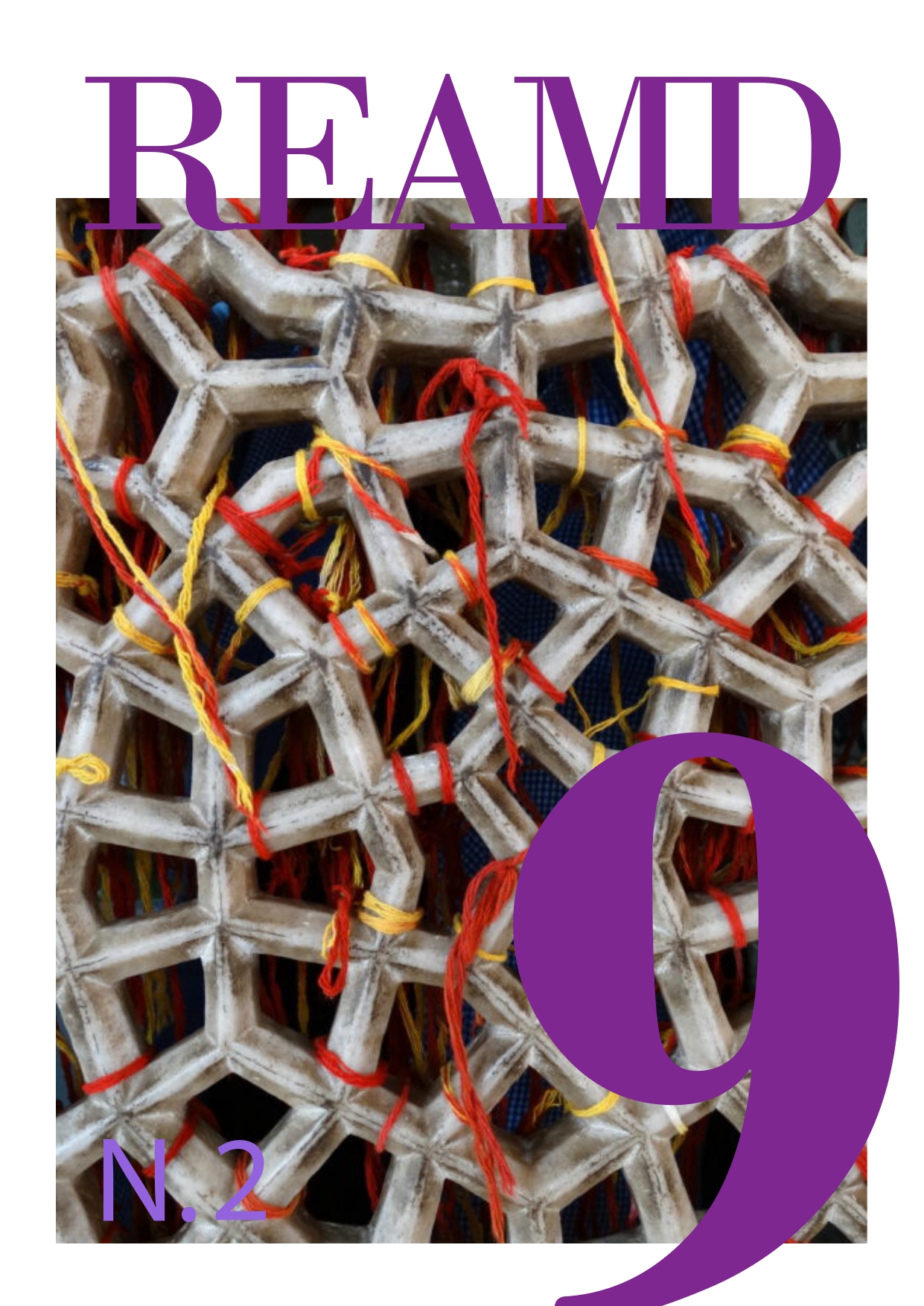Spinning the escape, unraveling the silence: images as devices of resistance and creation
DOI:
https://doi.org/10.5965/25944630922025e6970Keywords:
Education, Images, Ciberculture, Creation, MovementsAbstract
This article aims to understand how images operate as devices for creating tactics of subversion, forging other ways of narrating and inspiring teaching in cyberculture. If educating is about composing meanings, it is also a creative act, an action that humanizes, requiring a sensitive listening that is open to otherness. Therefore, as educators, we reaffirm the need for a teaching practice that recognizes the power of emotions and experiences, allowing for the invention of other ways of being/in the world. In light of this, we explore the movements of cyberculture and its circulating images. Our theoretical-epistemological choice was for Research with Everyday Life and the method of online cartography. We mapped images and some comments on the social network Instagram from the user @mayaraferrao. As a finding of the research, we observed that these movements not only expand the aesthetic dimensions of images but also unfold them into others, serving as devices of resistance and creation that forge new ways of narrating and inspiring teaching in contemporary times.
Downloads
References
ALVAREZ, J.; PASSOS, E. Pista 7 - cartografar é habitar um território existencial. In: PASSOS, E.; KASTRUP, V.; ESCÓSSIA, L. (org.). Pistas do método da cartografia: pesquisa-intervenção e produção de subjetividade. Porto Alegre: Sulina, 2015. p. 131-149.
ANDRADE, N.; CALDAS, A. N.; ALVES, N. Os movimentos necessários às pesquisas com os cotidianos – após muitas “conversas” acerca deles. In: OLIVEIRA, I. B. de; PEIXOTO, L. F.; SÜSSEKIND, M. L. (org.). Estudos do cotidiano, currículo e formação docente: questões metodológicas, políticas e epistemológicas. Curitiba: CRV, 2019.
ARDOINO, J. Para uma Pedagogia Socialista. Brasília: Plano, 2003.
CERTEAU, M. A invenção do cotidiano: artes de fazer. Petrópolis: Vozes, 1994.
DELEUZE, G.; GUATTARI, F. Mil Platôs: capitalismo e esquizofrenia. São Paulo: Ed. 34, 1995. v. 1.
DELEUZE, G.; GUATTARI, F. O anti-Édipo: capitalismo e esquizofrenia. São Paulo: Ed. 34, 2011.
DIDI-HUBERMAN, G. O que vemos, o que nos olha. Tradução de Paulo Neves. São Paulo: Ed. 34, 1998.
HAN, B-C. Favor fechar os olhos: em busca de outro tempo. Petrópolis: Vozes, 2021.
HOPPER, E. Morning Sun. Columbus Museum of Art,1952. Disponível em: . Acesso em: 27 fev. 2025.
KRENAK, A. Ideias para adiar o fim do mundo. São Paulo: Companhia das Letras, 2019.
MACEDO, R. S. Pesquisa-Formação/Formação-Pesquisa: criação de saberes e heurística formacional. Campinas: Pontes Editores, 2021.
MAYARAFERRAO. Lua de muito mel. [S. l.], 11 maio 2024. Instagram: @ mayaraferrao. Disponível em: < Instagram>. Acesso em: 28 fev. 2025.
NÚÑEZ, G. Descolonizando afetos: experimentações sobre outras formas de amar. São Paulo: Planeta do Brasil, 2023.
PAIS, J. M. Culturas Juvenis. Lisboa: Imprensa Nacional Casa da Moeda, 2003.
PALLASMAA, J. As mãos inteligentes: a sabedoria existencial e corporalizada na arquitetura. Tradução de Alexandre Salvaterra. Porto Alegre: Bookman, 2013.
PEREIRA, T.; MENDES, L. Navegar, explorar, cartografar: é possível que os perfis de leitura do Instagram afetem os leitores? Entretexto, [S. l.], v. 23, n. 2, p. 189-206, 2023. Disponível em: < Navegar, explorar, cartografar: é possível que os perfis de leitura do Instagram afectem os leitores? | Entretextos>. Acesso em: 28 fev. 2025.
POE, E. A. Medo Clássico: o Retrato Oval. Tradução de Maria Heloísa. Rio de Janeiro: Darkside, 2018. v. 2, p. 65-68.
RUFINO, L. Vence-demanda: educação e descolonização. Rio de Janeiro: Mórula, 2021.
SANTOS, A. C. De cegos que vêem e outros paradoxos da visão: questões acerca da natureza da visibilidade. Santa Maria: UFSM, 2013.
SANTOS, R.; PEREIRA, T.; FARIAS, L. Um pio de resistência: conversas faladas, cantadas e ficcionadas nos/dos/com os cotidianos. Leitura: Teoria & Prática, 2024. No prelo.
SIMAS, L. A.; RUFINO, L.; HADDOCK-LOBO, R. Arruaças: uma filosofia popular brasileira. Rio de Janeiro: Bazar do Tempo, 2020.
SPINOZA, B. Ética. 3. ed. Belo Horizonte: Autêntica, 2010.
SOUZA, E. C. O conhecimento de si: estágio e narrativas de formação de professores. Rio de Janeiro: DP&A; Salvador: Uneb, 2006.
VENETA. A inteligência artificial é uma das ferramentas utilizadas pela diretora de cena e artista visual, Mayara Ferrão. [S. l.], 7 ago. 2024. Instagram: @ a_veneta_. Disponível em: < Instagram>. Acesso em: 28 fev. 2025.
VYGOTSKY, L. Psicologia da arte. São Paulo: Martins Fontes, 1998. (Trabalho original publicado em 1917).
Downloads
Published
How to Cite
Issue
Section
License
Copyright (c) 2025 Rosemary dos Santos, Thayra Fernandes Pereira, Yasmin do Nascimento Viana

This work is licensed under a Creative Commons Attribution 4.0 International License.
- Authors retain copyright and grant the journal the right of first publication, with work simultaneously licensed under the Creative Commons Attribution 4.0 International License, which allows for:
1. Share — copy and redistribute the material in any medium or format for any purpose, even commercially.
2. Adapt — remix, transform, and build upon the material for any purpose, even commercially.
The licensor cannot revoke these freedoms as long as you follow the license terms.Under the following terms:
1. Attribution — You must give appropriate credit, provide a link to the license, and indicate if changes were made. You may do so in any reasonable manner, but not in any way that suggests the licensor endorses you or your use.
2. No additional restrictions — You may not apply legal terms or technological measures that legally restrict others from doing anything the license permits. -
Plagiarism, in all its forms, constitutes unethical publication behavior and is unacceptable. This magazine uses iThenticate similarity control software.






